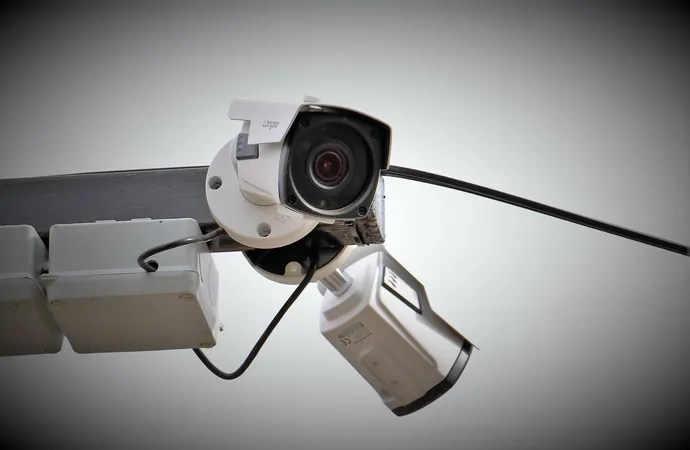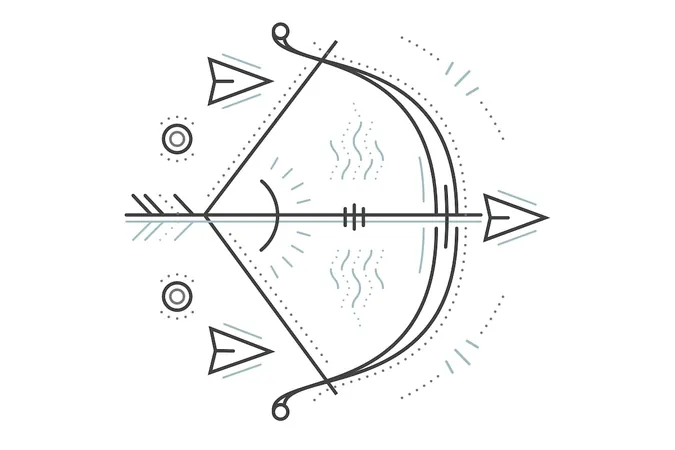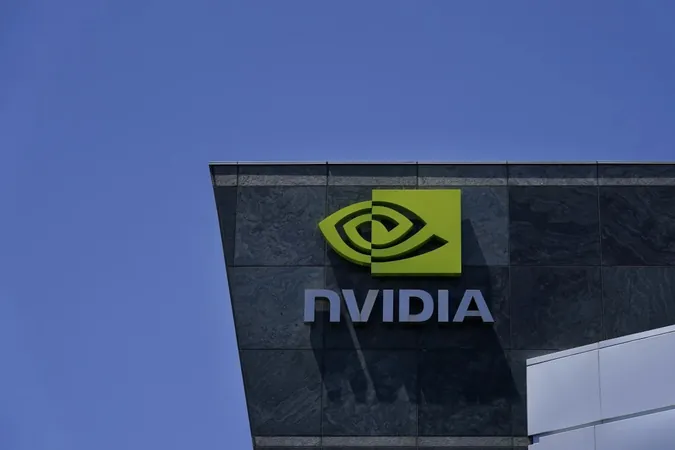
The Hidden Impact of Surveillance: How Big Brother Affects Our Minds
2024-12-17
Author: Emily
Introduction
In a groundbreaking study that could reshape our understanding of modern surveillance, researchers from the University of Technology Sydney (UTS) have uncovered the psychological consequences of being watched. The findings, published in the journal Neuroscience of Consciousness, reveal that individuals under surveillance not only exhibit changes in overt behavior but also experience involuntary alterations in the way their brains process information.
Key Findings
Led by Associate Professor Kiley Seymour, the research involved 54 participants tested for their ability to detect facial cues while under the scrutiny of CCTV cameras. While it’s already well-known that surveillance influences our actions—prompting many businesses to implement video monitoring systems for supposedly "improved" behavior—the new study highlights a more profound effect on our sensory perception, particularly our innate ability to notice when someone is looking at us.
"Previous studies have illustrated how being observed can modify our behaviors, yet our research is the first to provide direct evidence that such an environment triggers an involuntary response,” said Professor Seymour. “When people know they are being watched, it amps up their awareness almost instinctively."
Surprising Reaction Times
Shockingly, the researchers discovered that surveilled participants reacted to facial stimuli nearly a second faster than those who were not monitored. This heightened perceptual awareness surfaced without any conscious awareness from the participants, suggesting a primal mechanism hardwired into human evolutionary biology. It appears that our brains have adapted to detect potential threats in our surroundings—a function that intensifies when we feel observed.
Social Implications
This vital ability to identify faces is integral to human social interaction, as it allows us to glean important social cues, such as the direction of a person's gaze, which is crucial for predicting their behavior and understanding their intentions. The implications of this research are vast, particularly in a world where CCTV and surveillance technologies proliferate, resulting in a culture of constant observation.
Concerns Over Privacy
Professor Seymour emphasized the critical nature of these findings, especially amid ongoing discussions over privacy and surveillance policies in various societies. “Surprisingly, while participants do not express overt concerns about being monitored, the significant effects on their fundamental social processing capabilities are pronounced, warranting deeper investigation into how surveillance technologies impact mental health.”
Mental Health Connections
Furthermore, the study draws parallels to certain mental health conditions, such as social anxiety disorder and psychosis, where individuals may exhibit hyper-sensitivity to being observed. This connection could provide new avenues for understanding how prolonged exposure to surveillance not only affects behavior but could contribute to psychological challenges.
Conclusion
As our lives become increasingly intertwined with surveillance technology, understanding the psychological implications of Big Brother’s gaze is not just an academic concern; it's essential for preserving mental health in an era where privacy is disappearing. Are we prepared for the mental health repercussions of a world where everyone feels watched? The time for action—and awareness—might be more pressing than ever.









 Brasil (PT)
Brasil (PT)
 Canada (EN)
Canada (EN)
 Chile (ES)
Chile (ES)
 España (ES)
España (ES)
 France (FR)
France (FR)
 Hong Kong (EN)
Hong Kong (EN)
 Italia (IT)
Italia (IT)
 日本 (JA)
日本 (JA)
 Magyarország (HU)
Magyarország (HU)
 Norge (NO)
Norge (NO)
 Polska (PL)
Polska (PL)
 Schweiz (DE)
Schweiz (DE)
 Singapore (EN)
Singapore (EN)
 Sverige (SV)
Sverige (SV)
 Suomi (FI)
Suomi (FI)
 Türkiye (TR)
Türkiye (TR)